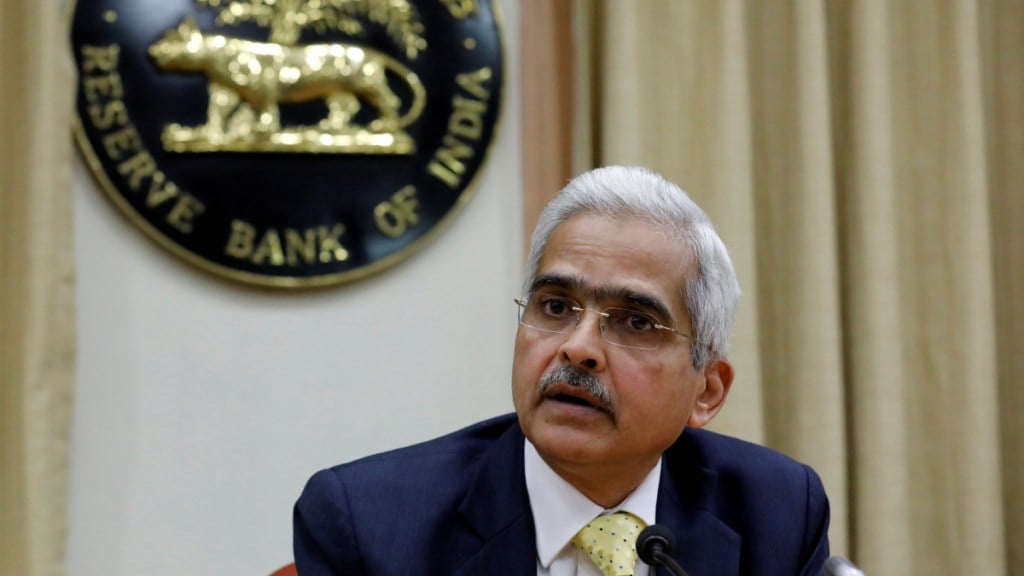Members of the Reserve Bank of India’s (RBI) Monetary Policy Committee (MPC) called for continuation of supply side measures to prevent spiraling of frequent food supply shocks into generalized economy-wide price impulses, according to the minutes of the 44th MPC meeting released Thursday.
The six-member MPC had on August 10 decided to keep repo rate unchanged at 6.50% and maintain the “withdrawal of accommodation” stance despite headline inflation, as measured by the Consumer Price Index (CPI), hovering above the target of 4%. Headline inflation had eased significantly from 6.2% in Q4FY23 to 4.3% in May 2023, however, it rose to 4.8% in June on the back of rising food prices, especially of tomatoes.
In his address, Governor Shaktikanta Das said the headline CPI is expected to harden significantly in July-August, driven by the spike in tomato and other vegetable prices. To be sure, India’s July CPI inflation hit a 15-month high of 7.44% in July, primarily led by higher tomato prices and other ingredients in the food basket. The July headline inflation figures were released post August 10 MPC meeting.
While the vegetable price shocks are expected to correct quickly with the arrival of fresh crops, Das says there are risks to the food and the overall inflation outlook from El Nino conditions, volatile global food prices and skewed monsoon distribution–all of which warrant close monitoring. In the non-food category, crude oil prices have firmed up reflecting tighter supply conditions, he said.
“Against this backdrop, supply side measures need to be continued to prevent the spiraling of frequent food supply shocks into generalised economy-wide price impulses,” adding that the softening of core inflation by around 100 basis points (bps) from 6% in Q4FY23 to 5.1% in Q1FY24 is a source of “some comfort” amid rising food prices, although it is still at an elevated level.
External MPC member Ashima Goyal shared similar views, saying that agricultural prices must become more resistant to possibly more frequent weather shocks. For this to happen, well diversified and resilient vegetable supply chains are required, she says. She added that well-functioning markets respond before price spikes become very large.
“Delhi should not be buying tomatoes only from Himachal Pradesh. States can experiment with allowing corporations more direct access to farmer organizations. Large food retail chains also buying from mandies aggravates price movement in India,” Goyal said. She added that farmer cooperatives have more bargaining power and platforms like Open Network for Digital Commerce (ONDC) can aid them in establishing supply agreements anywhere in the country.
Another external MPC member Jayant Varma said that he had warned the MPC in June to not declare an early victory against inflation based on just a couple of months of lower inflationary print. He said that it is now clear that headline inflation would hover above the RBI’s tolerance band of 4%-6% for the next couple of months.
“I view these monthly gyrations with some degree of equanimity. Just as a couple of low readings do not call for celebration, it is equally true that a couple of very high readings do not call for panic,” he said, adding that the most important aspect is the projected trajectory of cooling of inflation over the next several quarters.
Varma continued to be the only MPC member who expressed reservations against the withdrawal of accommodation stance. “This would be the third successive meeting at which the repo rate has been left unchanged (assuming that the MPC decides to pause now). This disconnect between stance and action has completely hollowed out whatever meaning the stance might have originally had, and turned it into a harmless ritualism,” he said.
Lastly, RBI deputy governor Michael Patra said that from the second quarter of FY24, certain unfavourable base effects may create a ‘wet patch’ in the trajectory of GDP. Hence, he said that strengthening the momentum of domestic economic activity is key to realising the projected path of the economy over the rest of the year.
Ensuring the sustained easing of core inflation is crucial to the MPC’s objective of bringing inflation down to the target, he said, adding that this objective should not be undermined by supply shocks that show any signs of persisting and getting broader-based.
“While unanticipated and short-lived supply demand mismatches lie outside the realm of monetary policy, the commitment to price stability requires the RBI to see off these price perturbations by guarding against spillovers – in India, food price flares can permeate through wages, rents, transport costs and, importantly, through expectations into core inflation,” Patra said.

